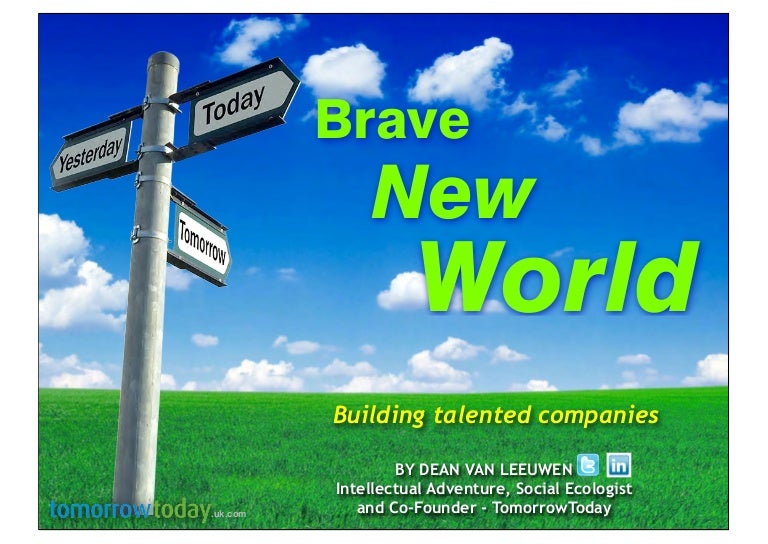

In Huxley’s novel, everything proceeds under the direction of an omnipotent-albeit benevolent-world state. Moreover, the cultural changes that technology has already wrought among us should make us even more worried than Huxley would have us be.
#PREVENTING A BRAVE NEW WORLD SUMMARY FULL#
But the kinships are disquieting, all the more so since our technologies of bio-psycho-engineering are still in their infancy, and in ways that make all too clear what they might look like in their full maturity. Prozac is not yet Huxley’s “soma” cloning by nuclear transfer or splitting embryos is not exactly “Bokanovskification” MTV and virtual-reality parlors are not quite the “feelies” and our current safe and consequenceless sexual practices are not universally as loveless or as empty as those in the novel. Huxley’s novel, of course, is science fiction. What matters most is bodily health and immediate gratification: “Never put off till tomorrow the fun you can have today.” Brave New Man is so dehumanized that he does not even recognize what has been lost. Art and science, virtue and religion, family and friendship are all passe. They do not read, write, think, love, or govern themselves. They consume, fornicate, take “soma,” enjoy “centrifugal bumblepuppy,” and operate the machinery that makes it all possible. The Brave New World has achieved prosperity, community, stability, and nigh-universal contentment, only to be peopled by creatures of human shape but stunted humanity. But this victory comes at the heavy price of homogenization, mediocrity, trivial pursuits, shallow attachments, debased tastes, spurious contentment, and souls without loves or longings. At long last, mankind has succeeded in eliminating disease, aggression, war, anxiety, suffering, guilt, envy, and grief. Huxley depicts human life seven centuries hence, living under the gentle hand of humanitarianism rendered fully competent by genetic manipulation, psychoactive drugs, hypnopaedia, and high-tech amusements. Following those aspirations to their ultimate realization, Huxley enables us to recognize those less obvious but often more pernicious evils that are inextricably linked to the successful attainment of partial goods.

Indeed, it is animated by our own most humane and progressive aspirations. Unlike other frightening futuristic novels of the past century, such as Orwell’s already dated Nineteen Eighty-Four, Huxley shows us a dystopia that goes with, rather than against, the human grain. In his charming but disturbing novel, Brave New World (it appeared in 1932 and is more powerful on each re-reading), he made its meaning strikingly visible for all to see. And, to leave this vale of tears, a little extra morphine accompanied by Muzak. Ritalin for the young, Viagra for the old, Prozac for everyone. Some transforming powers are already here. For anyone who cares about preserving our humanity, the time has come to pay attention. In leading laboratories, academic and industrial, new creators are confidently amassing their powers and quietly honing their skills, while on the street their evangelists are zealously prophesying a post-human future.

Human nature itself lies on the operating table, ready for alteration, for eugenic and psychic “enhancement,” for wholesale re-design. Yet contemplating present and projected advances in genetic and reproductive technologies, in neuroscience and psychopharmacology, and in the development of artificial organs and computer-chip implants for human brains, we now clearly recognize new uses for biotechnical power that soar beyond the traditional medical goals of healing disease and relieving suffering.

All are wedded to the modem technological project all march eagerly to the drums of progress and fly proudly the banner of modem science all sing loudly the Baconian anthem, “Conquer nature, relieve man’s estate.” Leading the triumphal procession is modem medicine, which is daily becoming ever more powerful in its battle against disease, decay, and death, thanks especially to astonishing achievements in biomedical science and technology-achievements for which we must surely be grateful. The urgency of the great political struggles of the twentieth century, successfully waged against totalitarianisms first right and then left, seems to have blinded many people to a deeper and ultimately darker truth about the present age: all contemporary societies are traveling briskly in the same utopian direction.


 0 kommentar(er)
0 kommentar(er)
